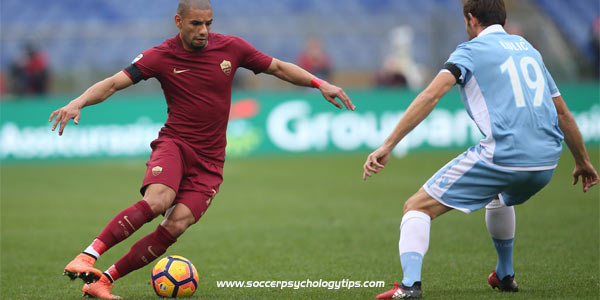
Overcoming Injuries in Soccer
Has an injury kept you off the soccer field for a period of time?
Remember a time when you were injured and couldn’t play soccer for a period of time?
You probably experienced a roller coaster of emotions…
You probably felt horrible being away from the team or watching games from the sidelines…
You may have questioned, “Will I ever get back on the field?” or “What if I lose my starting role?”
You may have feared re-injury and held back in practice or played tentatively in games.
Injury is an inevitable part of sport.
Not only do soccer players experience the physical pain of injury but there also exists strong negative emotions due to the injury.
Most soccer players define themselves by their sport, “I’m a soccer player.”
When you are injured and cannot play soccer for a period of time, you may feel like a part of you is missing.
When you are injured you may experience negative emotions such as:
- frustration
- disbelief
- anger
- depression
- anxiety
- fear of re-injury
The good news is that not all soccer players feel totally devastated after injury.
There are some mental factors that greatly influence how you manage your injury; including your response to the injury, your recovery and your return to competition.
Dr. Courtney A. Klenk investigated how injury affects athletes in her research, “Psychological Response to Injury, Recovery, and Social Support: A Survey of Athletes at an NCAA Division I University” (2006).
Klenk noted that negative emotions experienced as a result of injury can influence the athlete’s attitude toward and subsequent recovery from injury.
Klenk stated when an athlete experiences a high level of anxiety due to an injury, there is a greater potential for re-injury than athletes who are less stressed.
She identified two common aspects that help athletes respond positively to injury:
- Athletes who are reluctant to let an injury alter their goals or prevent them from fulfilling their aspirations respond better to injuries.
- Athletes who talked to other athletes who had successfully recovered from their injuries helped keep them positive throughout recovery.
Klenk concluded that it is just as important to attack an injury from mental perspective as it as from the physical angle.
Try these tips to remain positive despite injury:
- Tip #1: Continue to focus on your goals. What do you want to achieve long-term in soccer. Ask yourself, “How can rehab strengthen my body and help me achieve those goals?’
- Tip #2: Find support from coaches, athletes and mental training coaches on how to stay positive throughout the injury process.
Talk to other athletes about how they handled injury and returned to the game of soccer even better than before their injury.
Successful soccer players have learned how to perform with ultimate confidence in competition. We’ve developed Soccer Confidence, a Workbook Program to help you do this.
Related Sports Psychology Articles
- The Psychology of Soccer Injuries
- How to Overcome Adversity in Soccer
- How to Manage a Long-Term Soccer Injury
- Subscribe to The Sports Psychology Podcast on iTunes
- Subscribe to The Sports Psychology Podcast on Spotify
Download a free sports psychology report to improve your mental game!
Learn more about our one-on-one mental game coaching.
Boost Confidence in Soccer

“Soccer Confidence 2.0” 3-CD and Workbook program is the most comprehensive mental game program we’ve offered to the public. We’re virtually giving away all our mental game secrets for the incredibly low price of only $197.00 including the free bonuses!
“Soccer Confidence” is a complete brain dump of the TOP NINE mental training sessions we teach our soccer players to help them boost their mental game and improve consistency – from how to mentally prepare for games to performing under pressure to building unstoppable confidence.
